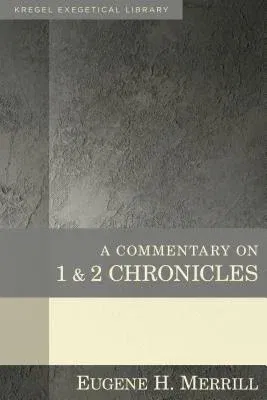A thorough exegetical analysis of each passage of 1 and 2 Chronicles
The trauma of the destruction of Jerusalem and the temple, the exile of
thousands of Judea's citizens, and the subsequent return after seventy
years to the homeland with the difficult task of starting the new
covenant community virtually from scratch-- all contributed to a
reassessment of Israel's meaning and destiny. The chronicler-theologian
thus composed his work not just as a history of his people from their
ancient beginnings but as an interpreted history, one designed to offer
hope to the beleaguered community as well as to issue warnings that
should they fall back into the ways of their fathers they could expect
the judgment of God to be repeated.
Eugene Merrill's work on 1 and 2 Chronicles promises to be a significant
contribution to the academic dialogue on these important books. This
volume is helpful for the scholar but accessible and useful for the
pastor. Merrill provides an exegetical study of each passage in these
books, examining a number of themes, especially drawing out three
principal theological subjects: (1) David and his historical and
eschatological reign; (2) the renewal of the everlasting covenant; and
(3) the new temple as a symbol of a reconstituted people. Merrill offers
astute guidance to preachers and teachers in his insightful doctrinal
commentary on the text.

